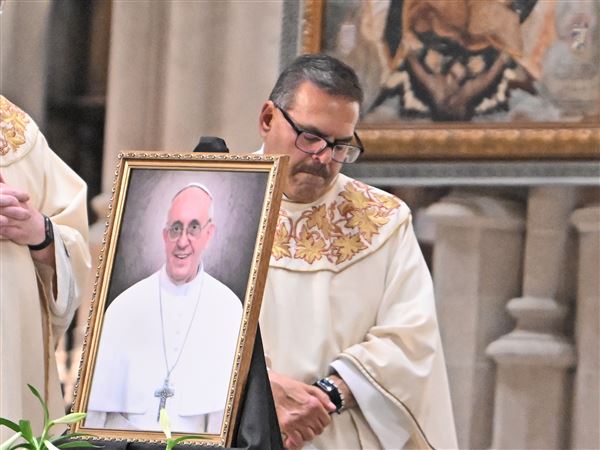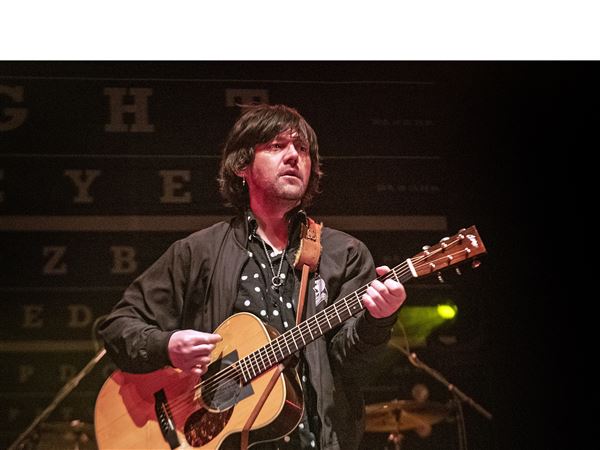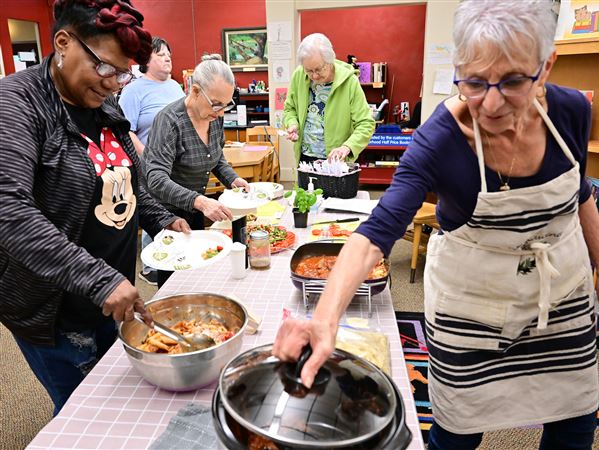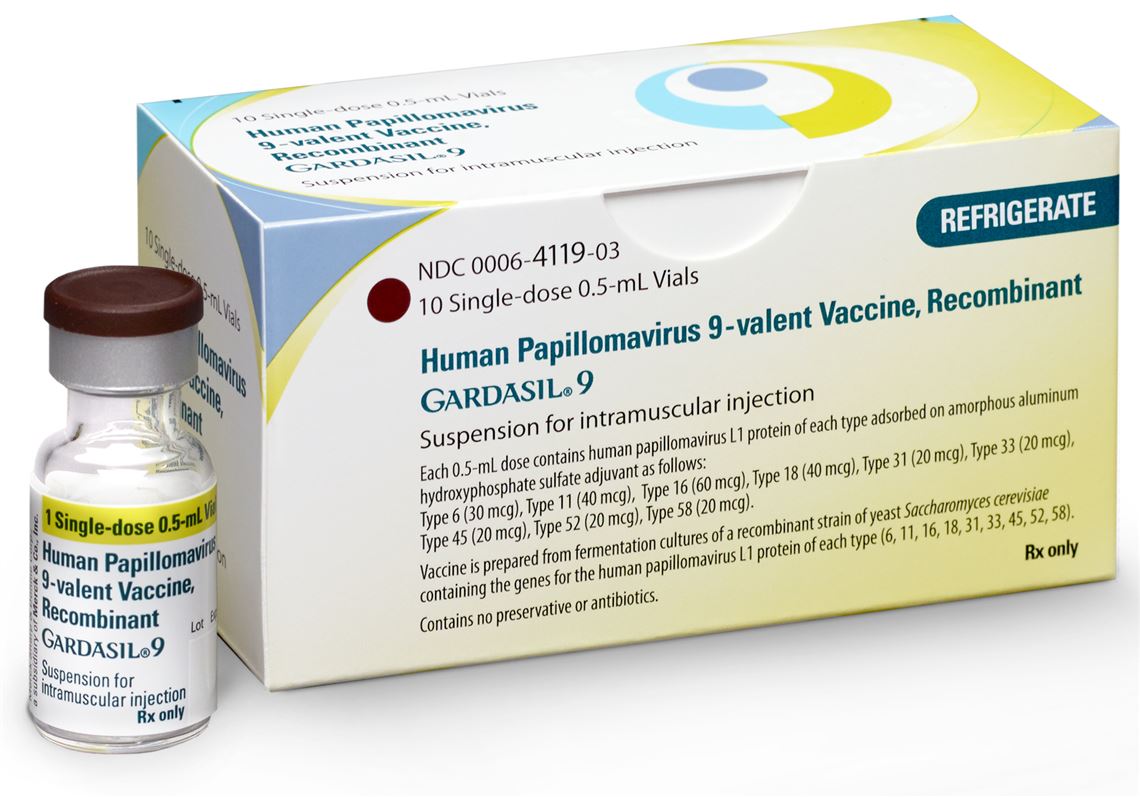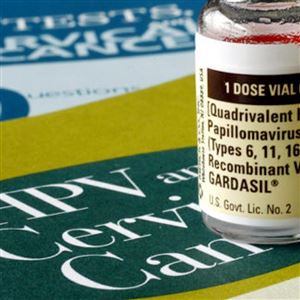Twelve years after the first vaccine for human papillomavirus was licensed for use, many young people still have not had the vaccine that is proven to prevent certain types of cancer. Cancer experts say they’re trying to turn that around, and their first target is eliminating cervical cancer.
The American Cancer Society estimates that about 4,170 women will die this year from cervical cancer. HPV can cause cell changes that can lead to cervical cancer.
HPV vaccination rates for girls and boys in the Pittsburgh area are still far below the Healthy People 2020 goal of 80 percent, although they are improving, according to Lyn B. Robertson, associate director of Health Equity, Education and Advocacy at UPMC Hillman Cancer Center.
As part of her work, she is now surveying physicians to determine what is keeping people from getting the vaccine and what, or who, is helping the effort.
“We don’t see the use of the vaccine as much as we’d like to see,” she said last week. Referring to the target 12-19 age group, she said. “In Pennsylvania we’re still 60 percent in females and 50 percent in males.
“We’ve been seeing it creep up, a lot due to the efforts of many people across Pennsylvania and the U.S.”
Earlier this month, HPV experts from cancer centers around the country — including the Hillman center, the National Cancer Institute, the U.S. Centers for Disease Control and Prevention and the American Cancer Society — announced a new push to have young people vaccinated against HPV. Nationally, about 40 percent of young people are believed to be up to date with the multidose vaccine.
The most current vaccine, Gardasil 9, protects against nine types of HPV, which cause about 90 percent of cervical cancers.
Ms. Robertson, who has a doctor of public health degree, said a lack of accurate knowledge about the vaccine might be holding parents back from having their children get it. There are no significant side effects, she said. The cost can be $200 per dose, but insurance should cover most of that cost, if not all.
The Advisory Committee on Immunization Practices, made up of medical and public health experts, recommends routine vaccination for girls and boys at age 11 or 12 years old. It can be started as early as 9. Two doses of the vaccine are advised for people starting the vaccine series before they turn 15. ACIP also recommends the vaccination for girls and women through 26 years old; for males, through 21. Also, males 22–26 years may be vaccinated.
The recommended age is for younger people because it is most effective when the vaccine is used before they are exposed to the virus, Ms. Robertson said.
Three doses of HPV vaccine are recommended for people starting the vaccine at 15 or older and for people with certain immune-compromising conditions.
Ms. Robertson reminds women that even with the vaccine, they should get cervical cancer screening. And men will benefit as well.
“People always ask, ‘When are you going to cure cancer?’ This vaccine prevents cervical cancer,” she said. “And it will probably have a great impact on head and neck cancer — we’re seeing an increase in younger men that are HPV positive.”
The vaccine also protects against HPV-related vulvar cancer.
There’s a research study going on now at Magee-Womens Hospital of UPMC to treat women already exposed to HPV and diagnosed with precancerous lesions in the vulvar area — the skin around the urethra and vagina.
About 5,000 women get vulvar cancer each year in the U.S. It can reoccur with itchy or irritating precancerous lesions, which is usually treated with repeated surgery.
Among those at risk are older women and smokers and women exposed to HPV. Many young, sexually active people are exposed to HPV, but for most of them, the infection goes away on its own.
Younger women who don’t clear the HPV virus can get the precancerous condition called vulval intraepithelial neoplasia, according to Robert Edwards, chief of gynecological services at Magee.
“We can treat the precancer we see, but it ends up coming back,” he said. Losing the vulvar tissue is disfiguring, he added.
“It’s a frustrating problem for these women,” many of whom are smokers, he said.
The vulvar cancer clinical trial includes 21 cancer centers in the country. Dr. Edwards is principal investigator at the Magee site; co-principal investigator is Jessica Berger, a gynecological cancer specialist.
They are testing a therapeutic vaccine for women who didn’t get the HPV vaccine, Dr. Berger said. It’s part of a series of studies using the vaccine to clear the body of HPV.
In addition to the surgical procedure to remove the lesions, Dr. Edwards said, the patient gets the vaccine four times — an injection delivered with three small electrical shocks (“It makes the vaccine work better,” Dr. Edwards said). Each treatment is a month or more apart.
Successful outcomes will be no sign of HPV and no lesions in the vulvar tissue. Dr. Berger said previous research has been positive: “If you’ve been exposed, the prophylactic vaccine showed a curative rate.”
Jill Daly: jdaly@post-gazette.com or 412-263-1596.
First Published: June 26, 2018, 12:00 p.m.
